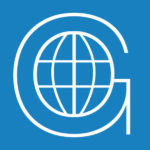 The World Health Organization (WHO) has issued new guidelines for air travel and the Central Intelligence Agency (CIA) has issued its own guidelines for international travel.
The World Health Organization (WHO) has issued new guidelines for air travel and the Central Intelligence Agency (CIA) has issued its own guidelines for international travel.
Both organizations recommend all travelers should receive a current International Certificate of Vaccination or Prophylaxis (ICVP) against cholera, diphtheria, hepatitis A and B, Haemophilus influenza Type B, influenza type A and B, measles, mumps and rubella viruses, pneumococcus type 23-valent vaccine (PCV), poliovirus booster dose for adults never previously immunized against poliovirus infection or vaccinated as children with an inactivated polio vaccine.
In response to the recent COVID-19 outbreak, many countries have imposed new passenger health requirements. These requirements include mandatory COVID-19 testing and vaccine certificates. But some argue that these requirements are causing a significant increase in the cost of travel and may even be a deterrent for some travelers from going abroad.
In response to these arguments, some experts suggest we must bake credential checks into our travel eco-system everywhere. They argue that this would allow more people to travel without an excessive financial burden while still protecting them from diseases like COVID-19.
The new COVID-19 testing and vaccine certificate requirements for all passengers coming from countries affected by the virus will be rolled out in 2020.
There is a significant concern that travelers will face discrimination or stigmatization while traveling because of these new passenger health requirements.
Therefore, we must bake health credential checks into our travel eco-system everywhere.
Passenger health and safety is a critical issue for the aviation industry. Authorities are pushing for stronger passenger safety measures to be put in place.
These requirements are being implemented at the airport, but are they being implemented everywhere? With more people traveling in different modes of transportation, these requirements need to be implemented in all areas of the travel ecosystem.
The new U.S. Department of Homeland Security (DHS) COVID-19 testing is an example of the stringent new health credential checks that are being imposed on travelers.
Such tests are not just for air travelers. They’re for many travelers, including the ones who plan to visit the United States.
This is a crucial digital shift any international travel organization cannot ignore or postpone any longer.
These new health credential checks come with strict deadlines and penalties for organizations that don’t comply; the penalties will be high fines or even bans on some airlines and cruise lines from traveling to some countries in Europe.
We must pay attention to these new passenger health requirements because they’re different from anything we’ve seen before, so hotels, bus companies.
The new passenger health requirements are part of the new travel regulations that US Customs and Border Protection will enforce.
As travelers become more mobile, the need for digital credential checks has increased. This is not just about checking your passport at the airport anymore. It’s also about eliminating some of the uncertainty around COVID-19 testing, vaccine certificates, and SITA Health Protect.
We all want to go on vacation and enjoy our time away from work. But we need to ensure that we do not compromise our health.
Written by: Stephen Morton















